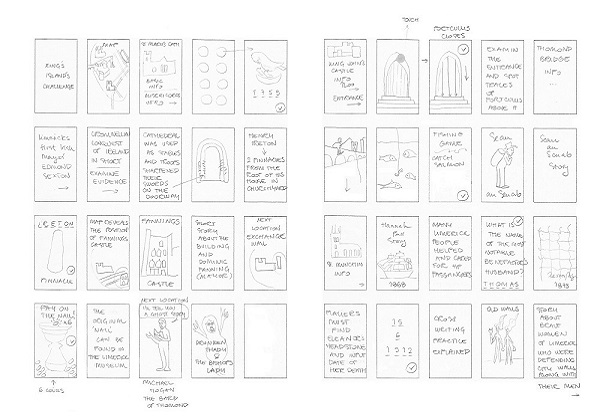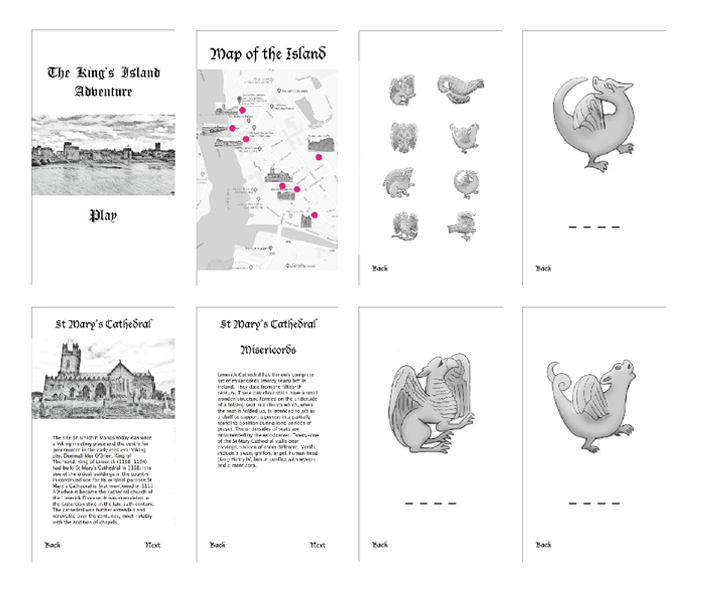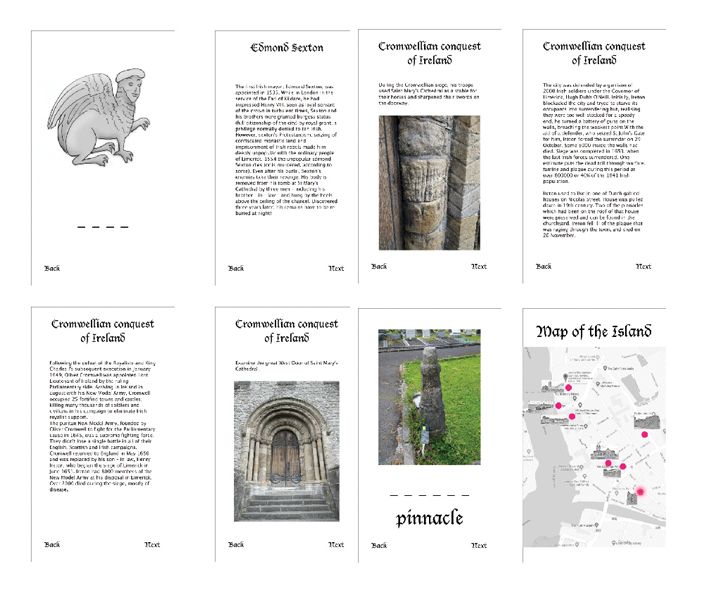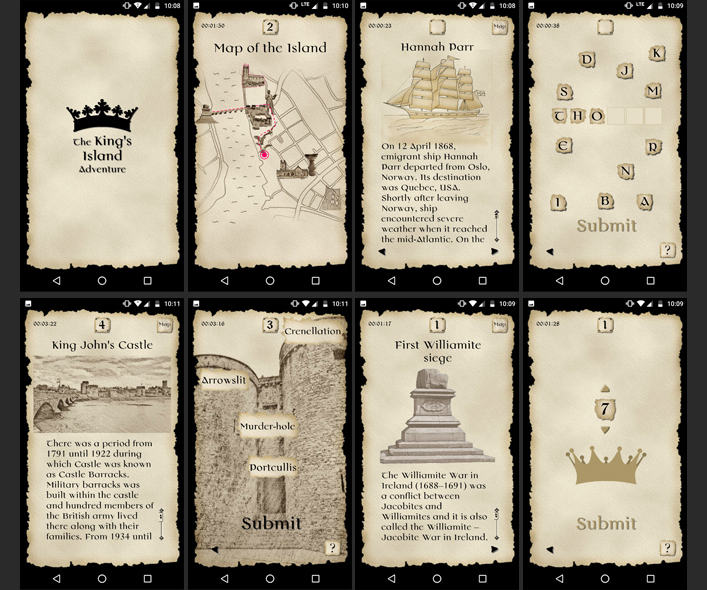Urban Adventure Game
The King's Island Adventure is an urban adventure game designed to promote Limerick's rich cultural heritage and complement regular city sightseeing tours. It highlights the importance of physical activity and social interaction as well as the awareness of our physical surroundings.
Designed as a mobile app this immersive experience will challenge players to visit and explore famous historical sites surrounding the King's Island area of Limerick City. It will teach them about the location before asking them to solve puzzles to unlock additional stories. Players of The King's Island Adventure will answer puzzles and riddles in teams which will create advantageous conditions for collaborative learning.
This gamified sightseeing aims to attract smartphone users who are open to new interactive experiences.
Design Process
Objectives
• Challenge players to explore their urban environment.
• Tell a story (interactive storytelling).
• Encourage collaborative problem solving.
• Provide visitors with fun, motivating learning experiences.
Challenge is to successfully integrate adventure genre features into a mobile game (meant to be played in a real physical surrounding) and to have these features serve as a learning tool.
Major findings in literature
• Games create motivating and engaging environments - they can be used as a powerful learning tool.
• Participants tend to join forces in order to come up with solutions.
• Games motivate players to engage with a context. The participants findings will encourage them to solve as many puzzles as possible.
Participatory design: Qualitative approach – (online) Focus group
At this stage of development, I wanted to obtain the participants opinions, attitudes and reactions to the concepts and gather insights that might be evoked by the group’s interaction.
The group consisted of 7 participants of different ages (from 25 to 65). I encouraged them to share anything about their experiences of cultural heritage, for example, what they liked and what they disliked.
Outcomes:
• Sightseeing & solving puzzles.
• Team game.
• Mobile application.
• Competing with other teams.
Participatory design: Inspiration method - Field walk
• Guided tour and conversation.
• Selection of locations/buildings/monuments.
• Selection of stories related to them.
Concept stage
• Using tasks as a way to attach a story to a place.
• Game can be adjusted to visitors’ preferences: one player, team or larger group of people.
• Competing feature can be enabled for a larger group.
• Collecting points for each solved puzzle/riddle.
• Players are able to choose a location from the map – nonlinear game.
Elaboration stage
• Drawings and Sketches.
• User journeys.
• Wireframes.
• Low Fidelity Paper Prototype.
• Qualitative Formative evaluation – Usability testing (in situ).
Tuning stage
• Fully functional app for android.
• 8 sites, 6 of them containing puzzles.
• 7 puzzles in total.
• Refined UI
• Voice recorded and integrated.
• Introduction to games added.



